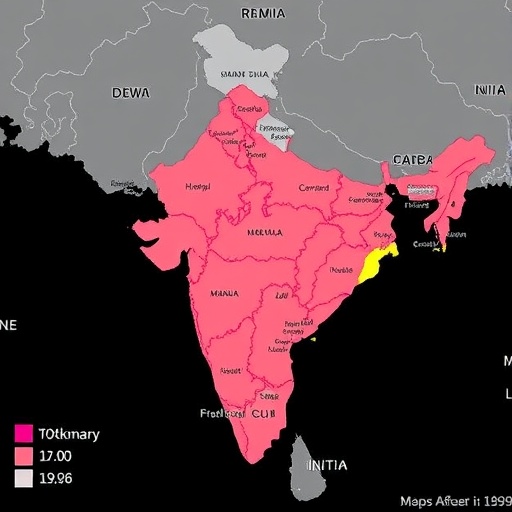PROTECT YOUR DNA WITH QUANTUM TECHNOLOGY
Orgo-Life the new way to the future Advertising by AdpathwayCommercial sunbeds should be banned in the UK, argue experts in The BMJ today.
Using sunbeds causes melanoma and other skin cancers, particularly among young people, yet existing sunbed legislation is ineffective and there is little evidence that stricter rules would help protect the most vulnerable, say Professor Paul Lorigan and colleagues.
Indoor tanning is experiencing a boom in popularity, particularly among Gen Z (born 1997-2012), with social media promoting sunbeds as integral to wellness, they explain. For example, a 2024 survey of 2,003 people in the UK by Melanoma Focus found that 43% of respondents aged 18-25 used sunbeds, half of them at least weekly, with many unaware of the associated dangers.
And despite a ban on under 18s using sunbeds in England and Wales in 2011, a 2025 survey by Melanoma Focus of 100 UK 16-17 year olds found that 34% were still using sunbeds.
Neither the number nor location of sunbed outlets in the UK are monitored, point out the authors. Data from websites and social media in January 2024 identified 4,231 sunbed outlets in England and 232 in Wales, with density per 100,000 population highest in north west and north east England and in the most deprived areas.
The distribution of sunbed outlets also correlates with melanoma rates in young people, with the highest rates in north England, they add. Over 2,600 new diagnoses were recorded annually in 25-49 year olds in England during 2018-20, with two thirds of cases in women, and 146 deaths.
Regulation has also failed to prevent young people’s use of sunbeds in other countries, they note. For example, the percentage of under 18s using sunbeds in the Republic of Ireland has barely changed since stricter regulation in 2014, while Iceland’s 15-17 year olds are now the main users of sunbeds despite a ban for under 18s from 2011.
The current situation in the UK is “a clear example of an under-regulated industry aggressively marketing a harmful product to a vulnerable population,” they write. “An immediate outright ban on commercial sunbeds alongside public education offers the most cost effective solution to reduce skin cancer, save lives, and ease the burden on the NHS.”
To counter the economic impact of banning sunbeds on providers and communities, they suggest use of a buy-back scheme “to mitigate industry pushback and the potential effect on livelihoods.”
They conclude: “The UK government has pledged to prioritise prevention and to reduce health inequalities. Commercial sunbeds target those who are most disadvantaged and susceptible to harm.”
“Enhanced efforts to encourage sun safe behaviours are critically needed but will likely take a generation to have an effect. A ban on commercial sunbeds is the first step in this process. It would send a clear message and have an immediate effect on skin cancer.”
Journal
The BMJ
DOI
10.1136/bmj-2025-085414
Method of Research
Commentary/editorial
Subject of Research
People
Article Title
Commercial sunbeds should be banned in the UK
Article Publication Date
1-Oct-2025
COI Statement
Competing interests: We have read and understood BMJ policy on declaration of interests and have
the following interests to declare: SK declares honoraria and travel support from Kyowa Kirin, Sanofi,
and Sun Pharma, unrelated to the topic. IC is a patient advocate and trustee of Melanoma Focus. SD
is chief executive of Melanoma Focus. PCL declares personal fees, advisory board fees, and travel
support from MSD, Pierre Fabre, BMS, Iovance, and MLA Diagnostics and institutional support for
research from BMS and Pierre Fabre, all unrelated to the topic, and wasthe previouschair of Melanoma
Focus.
Media Contact
Hannah Ahmed
BMJ Group
Journal
The BMJ
DOI
10.1136/bmj-2025-085414
Journal
The BMJ
DOI
10.1136/bmj-2025-085414
Method of Research
Commentary/editorial
Subject of Research
People
Article Title
Commercial sunbeds should be banned in the UK
Article Publication Date
1-Oct-2025
COI Statement
Competing interests: We have read and understood BMJ policy on declaration of interests and have
the following interests to declare: SK declares honoraria and travel support from Kyowa Kirin, Sanofi,
and Sun Pharma, unrelated to the topic. IC is a patient advocate and trustee of Melanoma Focus. SD
is chief executive of Melanoma Focus. PCL declares personal fees, advisory board fees, and travel
support from MSD, Pierre Fabre, BMS, Iovance, and MLA Diagnostics and institutional support for
research from BMS and Pierre Fabre, all unrelated to the topic, and wasthe previouschair of Melanoma
Focus.
Keywords
/Health and medicine/Diseases and disorders/Cancer/Skin cancer
/Health and medicine/Diseases and disorders/Cancer/Skin cancer/Melanoma
bu içeriği en az 2000 kelime olacak şekilde ve alt başlıklar ve madde içermiyecek şekilde ünlü bir science magazine için İngilizce olarak yeniden yaz. Teknik açıklamalar içersin ve viral olacak şekilde İngilizce yaz. Haber dışında başka bir şey içermesin. Haber içerisinde en az 12 paragraf ve her bir paragrafta da en az 50 kelime olsun. Cevapta sadece haber olsun. Ayrıca haberi yazdıktan sonra içerikten yararlanarak aşağıdaki başlıkların bilgisi var ise haberin altında doldur. Eğer yoksa bilgisi ilgili kısmı yazma.:
Subject of Research:
Article Title:
News Publication Date:
Web References:
References:
Image Credits:
Keywords
Tags: awareness of tanning dangersban on commercial sunbedsindoor tanning health risksmelanoma and skin cancer preventionpublic health advocacy for tanning regulationssocial media influence on tanningsunbed outlet monitoring in the UKsunbed usage statistics UKsunbed use among Gen Ztanning culture among young peopleUK sunbed legislationunder 18 sunbed ban


 4 hours ago
13
4 hours ago
13





















 English (US) ·
English (US) ·  French (CA) ·
French (CA) ·